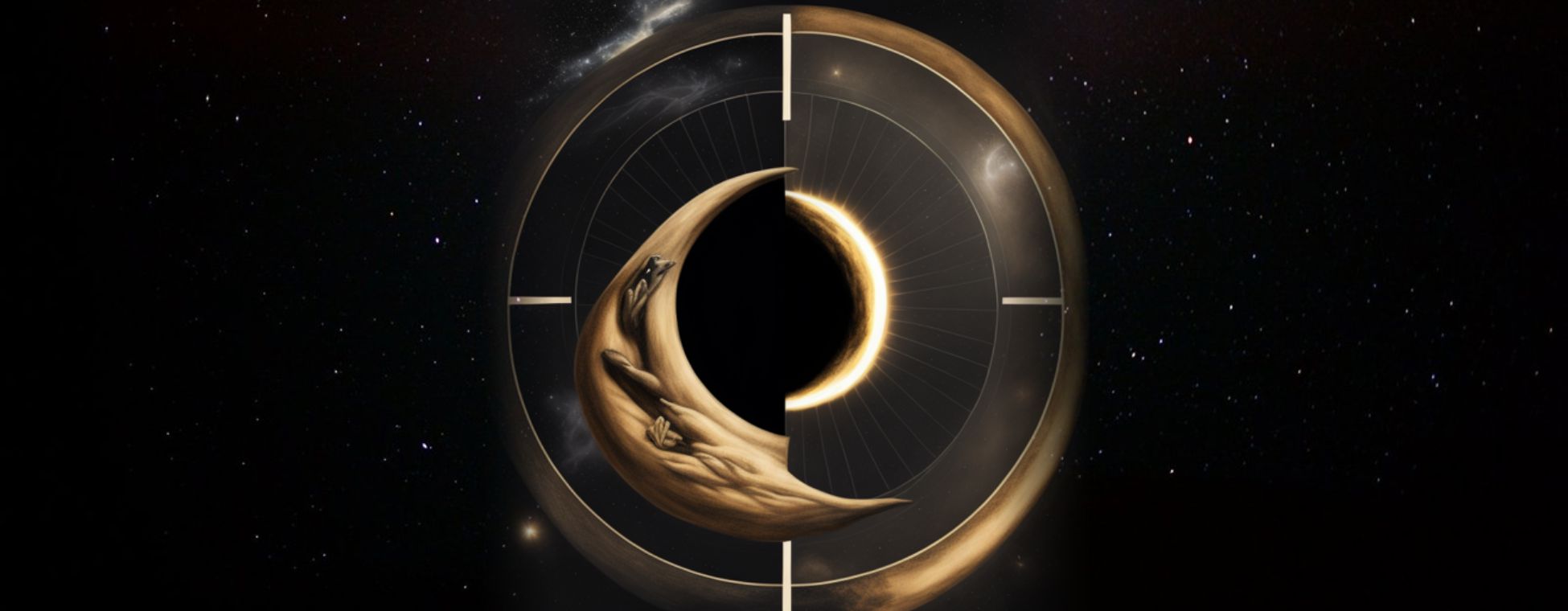
Meadowhouses: A Path to Personal Well-being and Sustainable Living
June 1, 2023Recently, I sent a message to my team colleagues requesting to move the time of a meeting half an hour ahead. Then, as I always do, I engaged in self-empathy to assess whether my decision would be understood in the way I intended. And due to the possibility of contradiction, I realized that I needed to provide a second explanation. So far, these are things that always happen. But when it comes to time, things got a bit complicated.
Now, time is such a different topic, an area that philosophers like Kindi, Hengel, Einstein, and many others have put a great deal of effort into. Since I sent a message and there is a chance that it may not be understood as intended, there's nothing I can do but find the contradiction I feel about time.
To know the past and the future of something, we need to know its position. The direction it faces determines whether our point is ahead or behind. But before that, we need to understand what we are looking at. What is time?
According to Kindi, time was the duration of an object's formation. However, time, space, and motion were not independent of each other. Hengel expressed a similar view in some of his letters to Karl Marx, stating that time, space, and motion are interconnected. But Kindi also added that a tree growing towards the sky would perceive humans as small. It's Einstein's relativity, the theory of relativity. Einstein has already clearly explained what time is. So now it's time to position time.
Let's choose a point to position time. When we look at this point, if we compare the speed of our thought process to the speed of the entire concept of time (considering an infinite measure of time, evaluating the processing time of finite beings like us), it becomes evident that we are stationary. In essence, when it comes to time, we become the black holes that Einstein mentioned.
Now here comes my thesis :) Since we are stationary beings compared to the existence of time, it means that we do not move on time. Time comes towards us. Taking the future of a process that comes towards us means that it has a further future, meaning it has a point that is getting closer to us. Moving a meeting time 30 minutes ahead means that according to our conventional perception of time, it should be 16:30. If we accept that time comes towards us, then the meeting time should get closer to us, and it should be 15:30. That's it, that's the reason for the contradiction in my statement. By communicating a clearer message to my friends, we reached an understanding in the direction I desired. But this dialectical short-term thinking opened up many contradictions within me, leaving me with a jumble of thoughts and a sense of meaninglessness.
So, if time comes towards us, the more we run against time, the closer it will get to us. Therefore, every effort I make for the future will bring me closer to the end. Plans for the future, projects made to catch up with them. This situation shortens the fast-paced, stressful life and leads to research. In order to extend the lifespan of humanity, it is necessary to live by reducing the intensity of lived time. And this is where studies confirming that people with hobbies, people who desire to independently pursue something in life, live healthier come into play. But how can we understand the intensity of time?
While discussing time with a friend one day, I received a message from them saying, "Time is faster than water." This sentence made me realize the way time is perceived within the body. Our body perceives physical phenomena through sensations, but it perceives time through enzymes. We can understand the intensity of time by observing the secretion rates of the enzymes we experience. Because time is different for everyone and everything. Therefore, space and movement influence the intensity of time. The meal you eat in a hurry, the street you stroll through to pass the time. Enzymes should be monitored to understand to what extent time affects you in these areas.
Because sometimes, when you hastily swallow the last morsel, you can feel it lingering in your throat for hours, like a tasteless and bland mass. In that moment, you experience your own intensity.
I used to think that time remained constant and we passed through it simultaneously. Now, I think a bit differently. The logic of time we use today is created as a reference point for all of humanity to come together in a shared perception and expression. A number line has been established. And that's why we have always considered time to be fixed. However, we are like numbers ourselves. We are the infinity between the previous number and the next. I liken this to astrology. Just like how zodiac signs exhibit common characteristics based on the day, hour, minute, and place of birth, in a life influenced by the laws of gravitational energy, we are consecutive numbers on this number line. Within this time frame, we are subject to infinite variables, living in a chaotic order.
Geçenlerde, ekip arkadaşlarıma bir toplantının saatini yarım saat ileri almak talebiyle bir mesaj gönderdim. Sonra her zaman yaptığım gibi verdiğim kararın istediğim doğrultuda anlaşılıp anlaşılamayacağıyla ilgili öz empatimi devreye soktum. Ve bu konuda çelişki olabileceği için ikinci bir açıklama yapmam gerektiği sonucu çıktı. Buraya kadar her zaman olan şeyler. Ama konu zaman olunca işler biraz karıştı.
Şimdi zaman o kadar farklı bir konu ki, Kindi, Hengel, Einstein ve birçok düşünürün çok emek harcadığı bir alan. Madem bir mesaj gönderdim ve bu mesajda istediğim doğrultuda anlaşılamama ihtimalim var, yapacak bir şey yok, zaman üzerindeki hissettiğim çelişkiyi bulmam lazımdı.
Bir şeyin ilerisini gerisini bilebilmek için onun konumunu bilmemiz lazım. Hangi yöne doğru durduğu bizim noktamızın ileri mi geri mi olduğunu belirleyecek. Ama ondan önce baktığımız şey ne, onu anlamamız lazım. Zaman nedir?
Kindi'ye göre zaman bir cismin oluşma süresiydi. Ama zaman, mekan ve hareket birbirinden bağımsız değildi. Ki bunun neredeyse aynısını Hengel; Karl Marx'a gönderdiği mektuplardan bazılarında aynı şekilde ifade ediyordu. Zaman, mekan ve hareket birbirinden bağımsız değil. Ama Kindi bir de bu zaman kavramının devamında gökyüzüne doğru çıkan bir insan ağacı küçük görür diye de ekliyordu. Yani Einstein'in görelilik, yani izafiyet teoremi. Zamanın ne olduğunu Einstein çok net bir şekilde açıklamış zaten. O zaman şimdi sıra zamanın konumlandırılmasına geliyor.
Zamanı konumlandırmak için bir nokta seçelim. Bu noktaya baktığımızda tüm zaman kavramının hızı ile bizim düşünme hızımız kıyaslanırsa (burada zamana sonsuzluk ölçüsü alırsak, sınırlı yaşayan bizlerin zamanın üzerindeki işlem süresini değerlendirirsek), bizim duragan olduğumuz anlaşılır. Yani aslında zaman için bizler Einstein'ın bahsettiği kara delikler oluyoruz.
Şimdi benim tezim geliyor :) Madem bizler duragan varlıklarız zamanın varlığına kıyaslanınca. Demek ki biz zamanın üzerinde hareket etmiyoruz. Zaman bize doğru geliyor. Yani bize doğru gelen bir sürecin ilerisini almak demek, kendisinin daha da ilerisi olur, yani bize daha da yaklaşan noktası olur. Bir toplantı saatinin saat 16:00'dan 30 dakika ileri almak demek. Bizim bildiğimiz zaman algısı içerisinde 16:30 olması demek. Eğer zamanın bize doğru geldiğini kabul edersek, işte o noktada toplantı saati bize daha da yaklaşması lazım ve 15:30 olması demek. İşte budur, cümlemdeki çelişki sebebi buymuş. Arkadaşlara daha net bir mesajla istediğim doğrultuda anlaştım. Ama bu diyalektik kısa süreli düşünme, benim içimde çok çelişkiler açtı ve karma karışık bir fikir yığınıyla anlamsızlığın içinde kaldım.
Peki, bu zaman bize doğru geliyorsa, biz zamana karşı ne kadar koşarsak o da o ölçüde bize yaklaşacak. Yani gelecek için yaptığım her mücadele aslında beni sona daha da yaklaştıracak. Gelecek için planlar, onlara yetişmek için yapılan projeler. Yani bu durum; "yoğun tempolu stresli is hayati yaşamı kısaltıyor." araştırmalarına çıkıyor. O zaman insanlığın ömrünü uzatabilmek için yaşanılan zamanın yoğunluğunu seyrekleterek yaşamak lazım. İşte burada da bir hobisi olan insanların, hayatta bağımsızca yapmayı arzuladığı bir uğraşı olan insanların daha sağlıklı yaşadıklarını doğrulayan çalışmalara çıkıyor. Peki, zamanın yoğunluğunu nasıl anlayabiliriz?
Zamanı düşünürken arkadaşla sohbet ettigim birgun, arkadasdan gelen bir mesaj: 'Zaman sudan hızlı.' Bu cümle bana, bedende zamanın hissediliş şeklini fark ettirdi. Yani bizim vücudumuz fiziksel olguları hisleriyle algılar, ama zamanı enzimlerle algılar. Zamanın yoğunlaşıp yaygınlaşmadığını, yaşadığımız enzimlerin salgı oranlarıyla anlayabiliriz. Çünkü zaman herkese, her şeye göre farklı. Bu yüzden mekan ve hareket zamanın yoğunluğunu etkiliyor. Telâşla yediğiniz yemek, vakit geçirmek için gezdiğiniz cadde. Bu alanlarda zamanın size ne ölçüde geldiğini anlamak için enzimler takip edilmeli.
Çünkü bazen telâşla ağzına atılan son lokmanın saatlerce damagında kaldığını hissedebilirsin, ne tadını ne de tuzunu alabildiğin samansı bir yığın olarak ağzında da kalabilir. İşte o an ne hissediyorsun, bu senin yoğunluğun.
Ben zamanın hep sabit kalıp, bizlerin onun üzerinden aynı anda geçtiğimizi hissederdim. Şimdi biraz daha farklı düşünüyorum. Bugün kullandığımız zaman mantığı: Bütün insanlığın ortak bir algıda buluşabilmeleri, ifade edebilmek için ölçüt noktasında kullanmak için. Bir sayı doğrusu oluşturulmuş. Ve biz bu yüzden zamanı hep sabit kabul görmüşüz. Oysaki bizler birer sayıyız. Bir önceki sayı ile bir sonraki arasında kalan sonsuzluğun kendisiyiz. Burasını astrolojiye benzetiyorum. Hangi gün, hangi saat, hangi dakikada, nerede doğduğuna göre kütle çekim enerji yasasından dolayı etkilenerek geldiğin bir hayatta, burçların ortak özellik göstermesi gibi. Bizler ardışık sayılarız bu sayı doğrusunda. Bu zaman dilimi içinde sonsuz değişkene maruz kalarak kaotik bir düzen içindeyiz.




